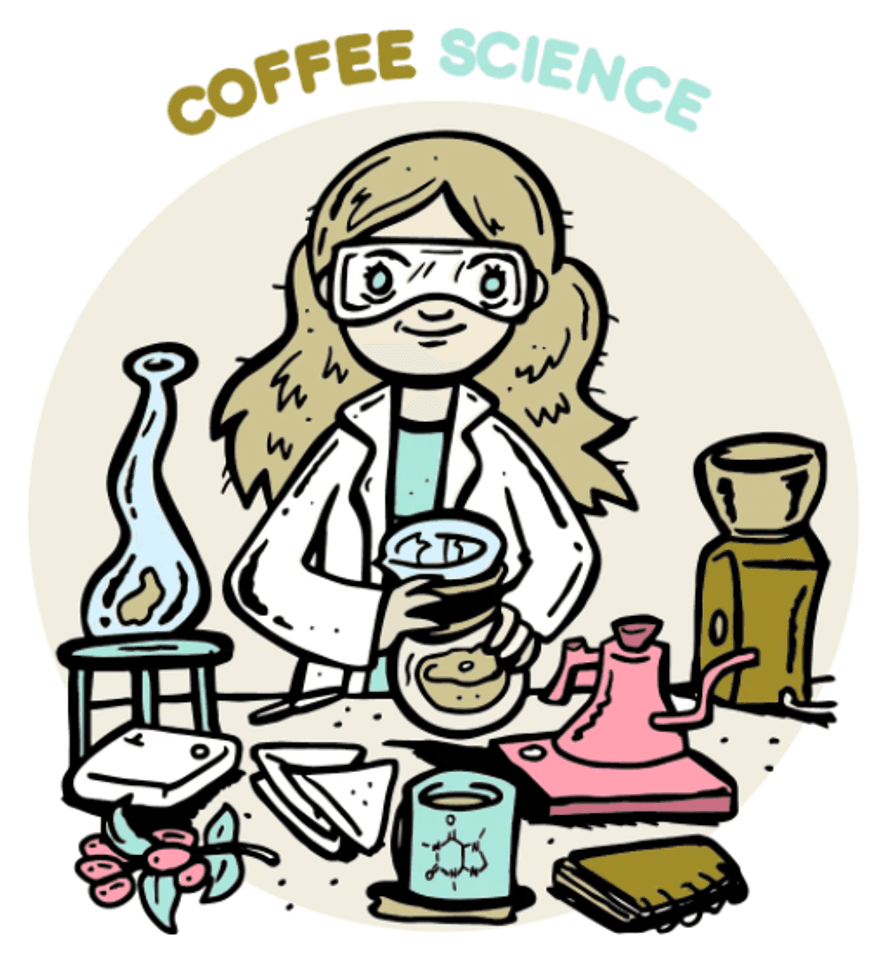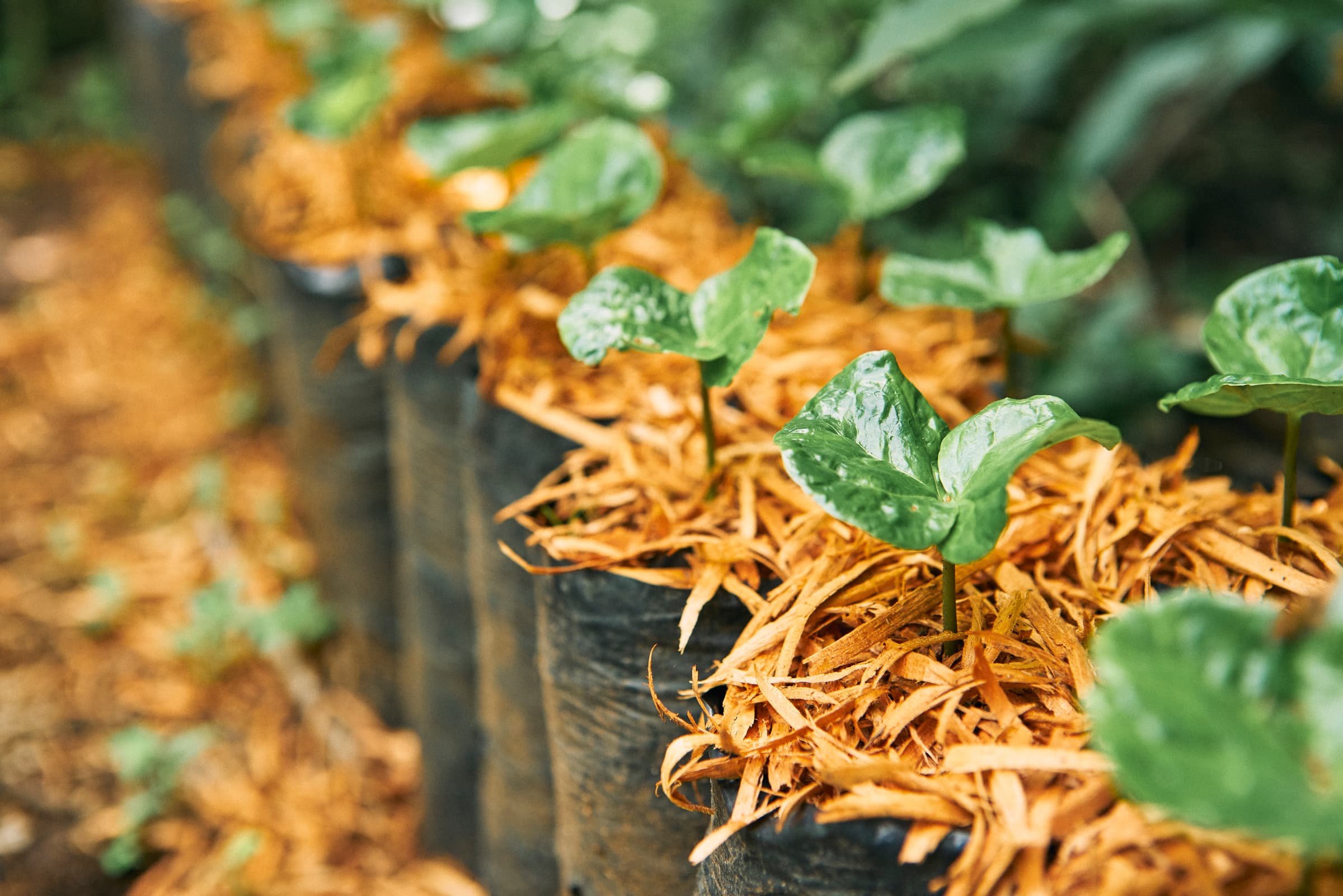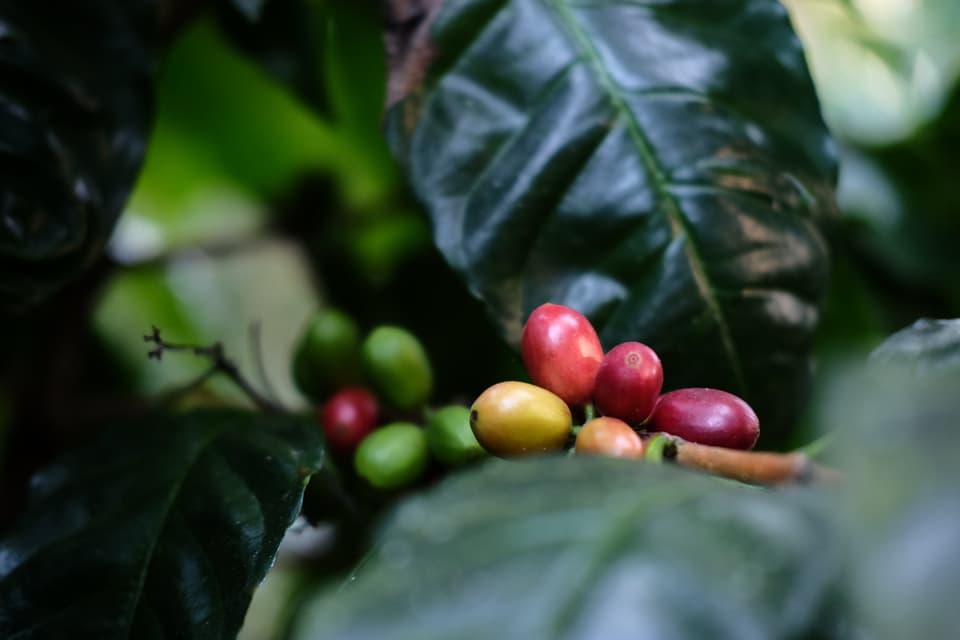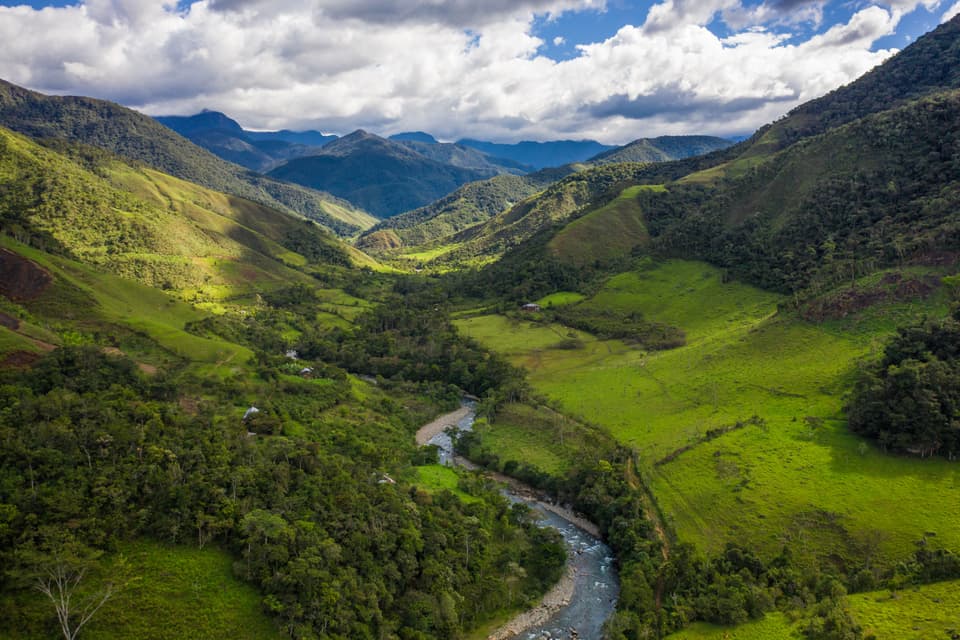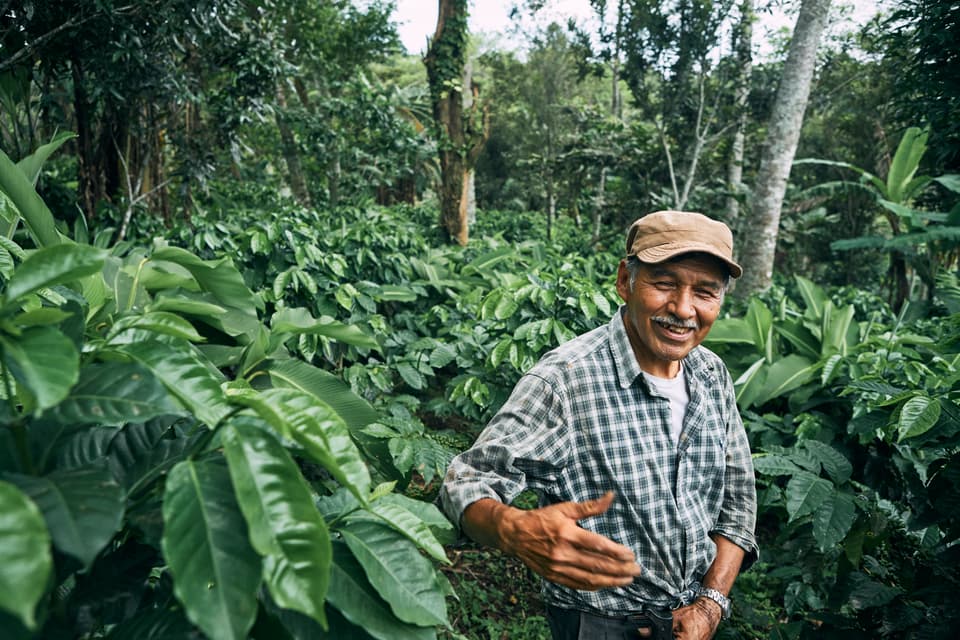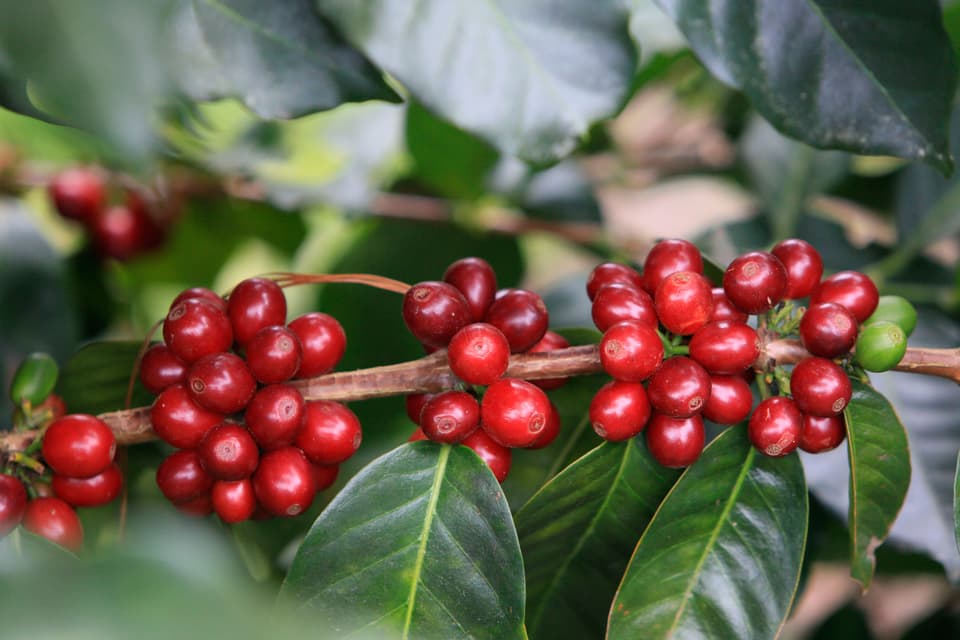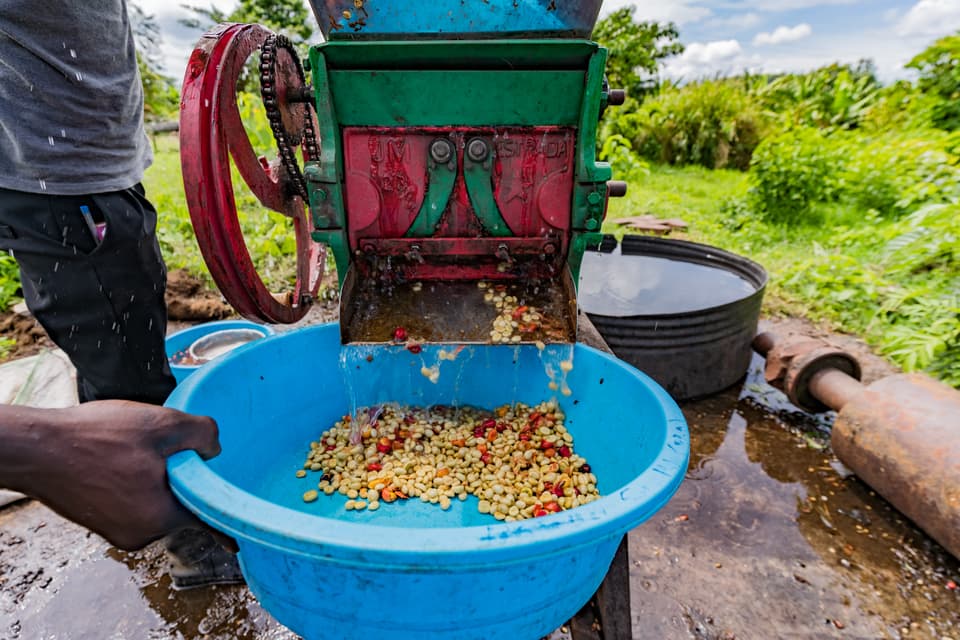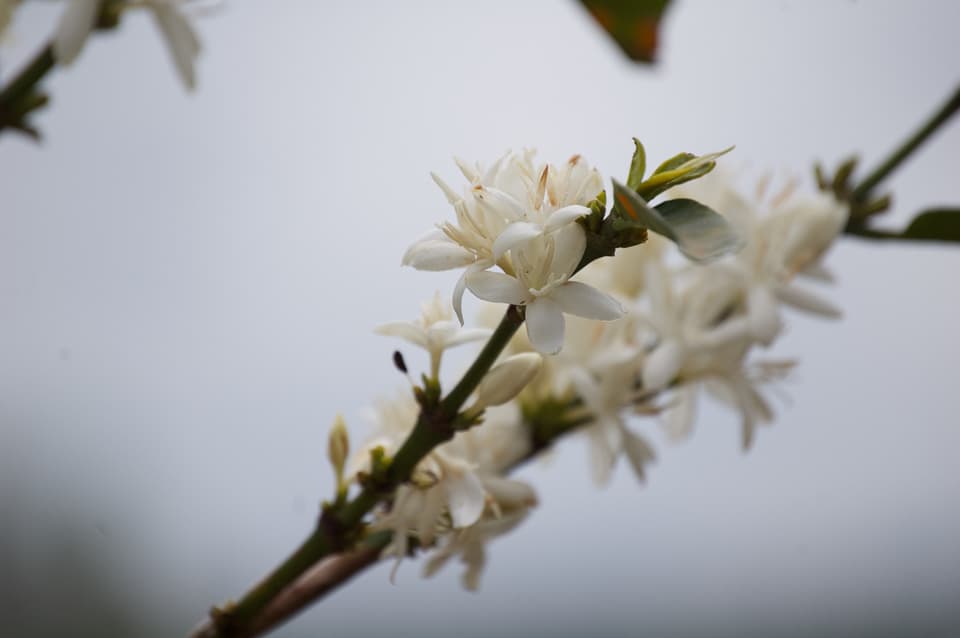Seed value chains evaluation
Designing solutions that address the complex and diverse challenges faced by farmers in different countries
The problem
There is no one way that new and better plants arrive in a farmers’ hands—there are many pathways and there can be huge differences between countries depending on local laws and regulations, the market system, and farmer demand. In short: Every country’s seed systems are unique. In Uganda, for example, the government distributes coffee trees free to most farmers through licensed nurseries, most of which have restricted access to high-end technologies; a minority of farmers save their own seed, obtain plants from neighbors, or pay for trees from nurseries. Meanwhile, in Guatemala, the vast majority of farmers save their own seed, but some farmers are able to access high quality plants from sophisticated private nurseries. These differences mean that there can be no “one size fits all” solution for helping farmers access better plants.
The solution
In order to design solutions that address the complex and diverse challenges faced by farmers in different countries, WCR works with local partners to carefully assess the bottlenecks and challenges to improving access to better plants. Assessment can include surveys of farmers and seed lot and nursery managers, interviews with regulators and researchers, reviews of regulations governing variety release and the structure of seed value chains, and convenings of stakeholders to identify challenges and generate enthusiasm to address barriers. To date, WCR has performed assessments in Guatemala, El Salvador, Honduras, Nicaragua, Peru, Uganda, Kenya, and Ethiopia.
Impact
Understanding clearly the main bottlenecks and challenges, tailored to the local context, allows WCR and its country partners to design comprehensive strategies to reduce the barriers to accessing healthy plants, whether it is the need to pass new regulations or laws enabling the release of new varieties, introducing traceability tools and best agricultural practices to improve the quality and genetic purity of seeds and plants, mobilizing funding for renovation using high quality plants, training nurseries, or empowering local extension services to educate farmers about new varieties and the importance of sourcing healthy plants.
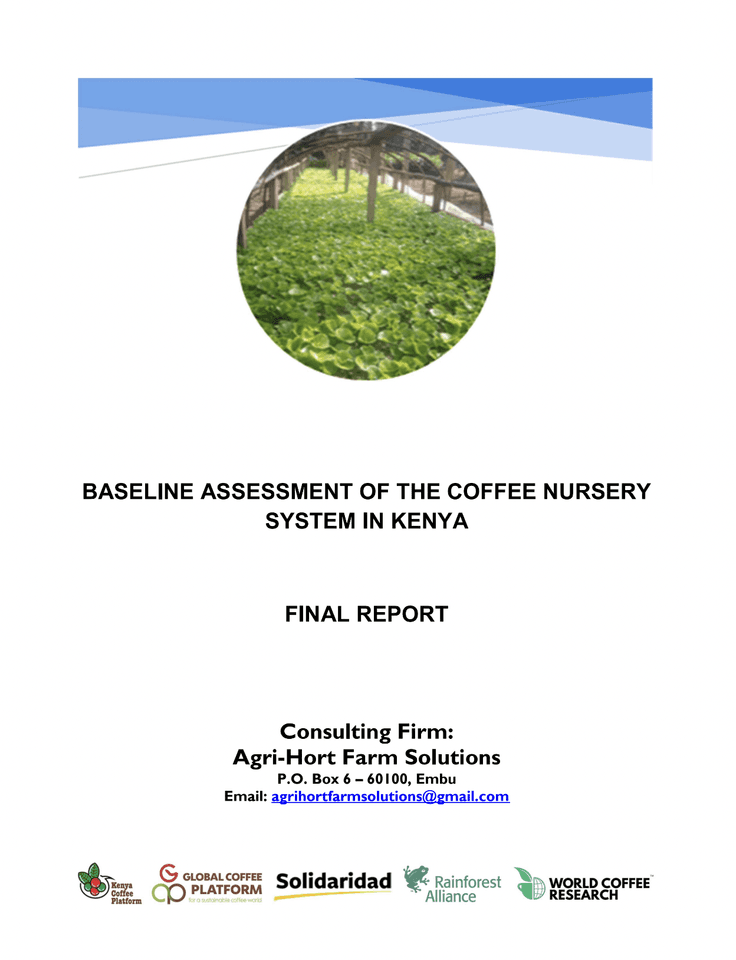
Baseline Assessment of The Coffee Nursery System in Kenya
Final report, 2021, in collaboration with the Kenya Coffee Platform, Global Coffee Platform, Solidaridad, Rainforest Alliance, and World Coffee Research
